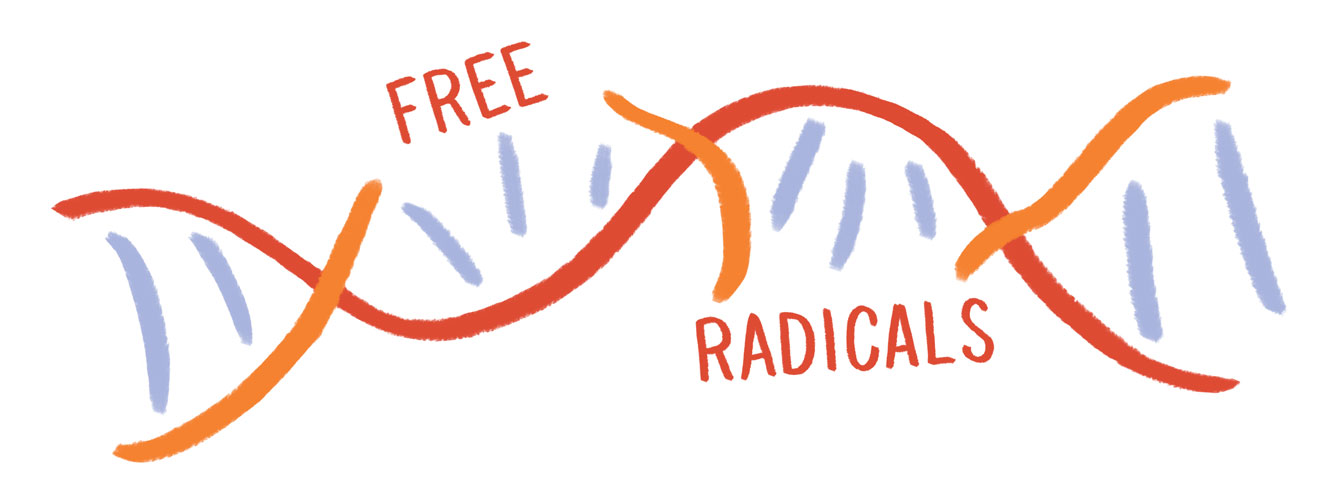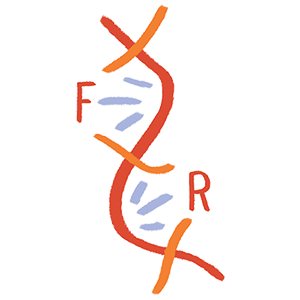
An illustrated figure styled as a doctor in a lab coat holds a clipboard. A pair of real, photographed eyes peers out from the doctor’s glasses. The image background is composed of medical textbook excerpts with “high-yield” phrases erased and replaced by lines from Scantron answer sheets. Artwork by Melody Yenn .
Preaching empathy in medical school is profoundly ineffective when detached from lessons of social justice. If students can be trusted to dissect human bodies, they should be challenged to critically examine their relationships to structural inequality.
I’ve been in medical school for a little over one semester now — just enough time to take a few exams and rekindle my relationship with coffee. For the next few years, medicine will mean an endless stream of facts about cells, organs, and bodies. It’s the most I’ve studied in my life, but in many ways it has also been the least: human bodies on paper, in isolation and excised from their sociocultural contexts, tend to reveal little about actual life.
To be clear, there is still a lot to (re)learn, as the last time I thought seriously about biochemistry was almost five years ago. I am forced to do math again in the form of epidemiology and study designs. I spend roughly half my time in gross anatomy lab in regretful, abashed silence after realizing the bit of grey flesh I’ve cut out is an important structure.
It took me a few weeks before it dawned on me that there was something terribly askew with how I was learning. I noticed it first when I found myself deleting entire slides from lecture powerpoints that didn’t promise “high-yield” content. I became obsessed with “efficient studying,” and gritted my teeth with impatience whenever an instructor strayed from the learning objectives. In the past, I would have treasured any glimpse into a teacher’s internal life that brought memorable insights to otherwise esoteric material. I was slowly turning into the kind of student I once looked down upon: closed-minded, unimaginative, and singularly focused on testable material.
Coming from a liberal arts background, where a lot of my education occurred outside the traditional classroom, I have always been (self-righteously) disdainful of any resistance to exploratory, curiosity-driven learning. But I don’t think this creeping feeling of wrongness merely stems from wounded pride or betrayed identity.
Every now and then, medical school likes to remind students that to be a physician is to embody the highest form of empathy and service. The problem is that we don’t have the freedom to explore what empathy and service might look like for us as individuals. There is no space to respond to all the knowledge dumped on students, even though medical knowledge — especially in relation to patient care — is often charged with emotions. We are only invited to reflect (with restraint) on the tragedies and triumphs of healing in a few sanctioned spaces under the surveillance of faculty.
It’s often said that what makes the first two years of medical school so difficult is not the complexity of the content but the sheer volume of it. In other words, medical school lacks depth. Facts are condensed into bite-sized mnemonics that strip the information of any meaning or purpose beyond memorization. For example, the acronym “SPACES” reminds us how to conduct a sexual history interview: S for starting age, P for number of partners, A for activities, C for contraception, E for sex education, and S for sexual abuse. If the goal is to memorize the most superficial components of a sexual history, SPACES is perfect. But when face to face with an individual who is a sex worker, or a survivor of sexual assault, or a participant in the kink community, SPACES does not award any insight into how to ask certain questions, formulate the appropriate follow-ups, and provide guidance related to sexual health.
This reluctance to pursue complexities and to engage fully with the multitudes contained in human experience becomes most dangerous in social justice contexts. Statements about structural disparities in healthcare systems are delivered in almost the same tone as descriptions of genetic disorders: vaguely regretful, always “objective,” and ultimately removed from responsibility. White supremacy and patriarchy are never named as contributors to those healthcare disparities, much less drawing attention to our own complicity in upholding racist, sexist practices. Earlier in the semester, I attended a mandatory workshop on “dealing with difference” in which all the students in my year were asked to write about a time we felt “left out.” By attempting to include everyone, the exercise seemed to equate experiences of systematic oppression — black students who fight dehumanizing stereotypes, or queer students who struggle with the heteronormative vocabulary pervasive in medicine — with the struggles of elementary school playgrounds. In trying to sidestep all political discomfort, it was not only ineffective but also highly disrespectful.
Successful pre-med applicants have already demonstrated unique skills and an appropriately diverse range of backgrounds and viewpoints. Why not call upon these valuable perspectives when we actually arrive on campus? The workshop on “difference” could have been more challenging and successful if it called out specific experiences of privilege and marginalization — perhaps in smaller groups facilitated by experienced community organizers or activists who understand how to create safe spaces and make discomfort constructive. In fact, the community surrounding medical schools should be viewed as a primary resource in our education: the aforementioned SPACES could be enriched by hosting a panel of sex educators and social workers. Furthermore, we as students have the unique power to mediate between patients and their health care providers: because we are not yet imbued with the full authority of the medical establishment, patients are more likely to be frank about their dissatisfaction. Alongside our usual patient interviews, we can ask our patients about what justice might look like in the context of medicine, and then share these narratives with our peers and faculty.
A mastery of foundational sciences is necessary, of course, but during these formative first steps of our career, I seriously question the lack of reflection, interpretation, and analysis in early medical education. We deserve to be challenged: if we are trusted to comprehend complex endocrine signaling pathways, we should be trusted to critically examine our role in the medical industrial complex. We should be encouraged to learn and teach from our lived experiences as people of color, as immigrants, as gender-nonconforming individuals — for ourselves and also for our future patients.





